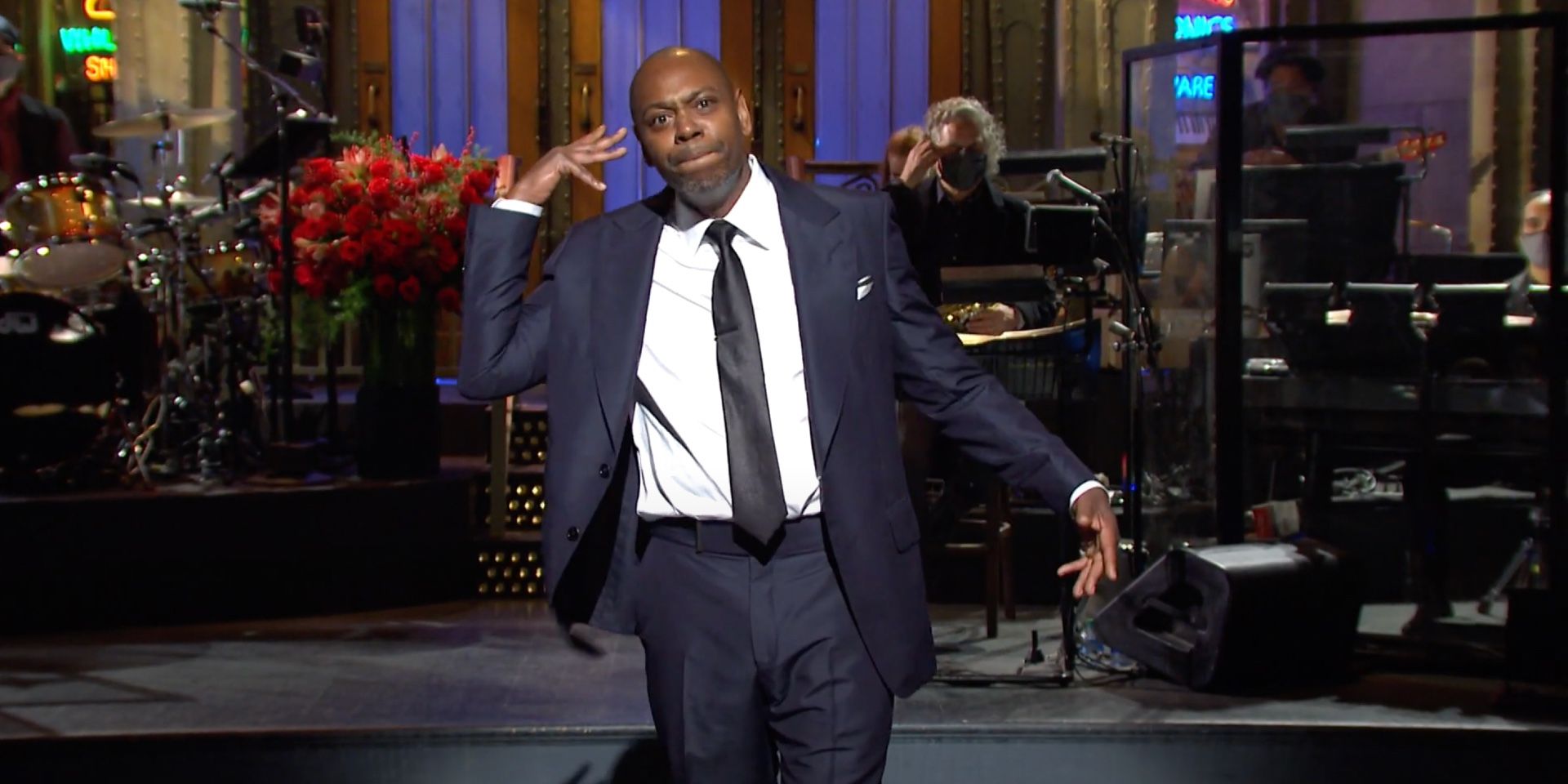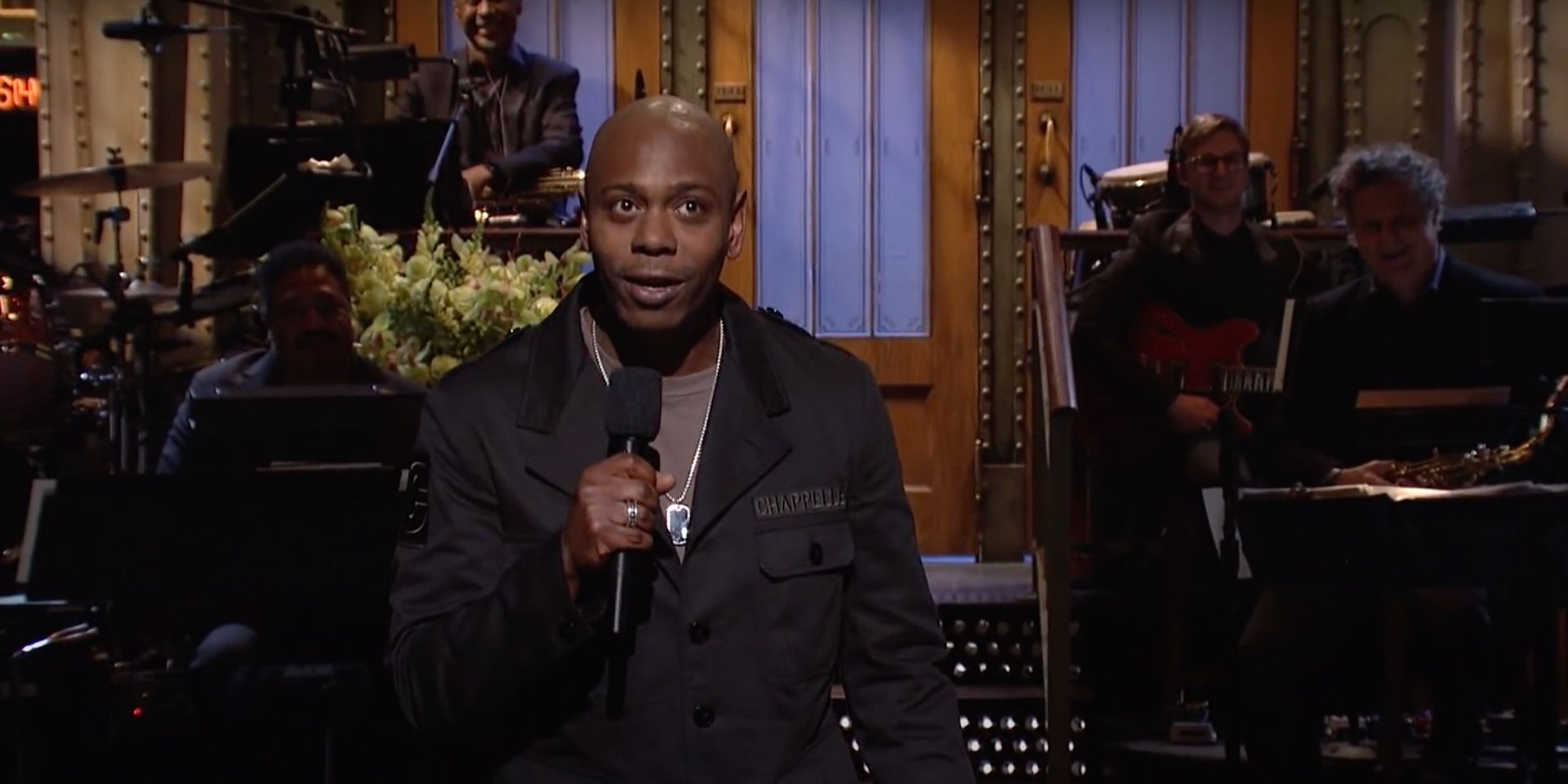How does Dave Chappelle's 2016 Saturday Night Live monologue compare to his 2020 routine? Both post-election shows include cultural commentaries on political and racial issues, and conclude with the host offering advice to the American public. The major difference, however, is Chappelle's comedic approach and self-awareness.
Chappelle hosted Saturday Night Live for the first time on November 12, 2016. Wearing a jacket that reads "CHAPPELLE," the comedian delivered an 11-minute set just days after Donald Trump defeated Hillary Clinton in the U.S. presidential election. Chappelle informed the audience that he anticipated the outcome, stating "I know the whites," and later spoke in the third-person while referencing his public persona. The comic ultimately asked all Americans to give Trump a chance, and stated, “We, the historically disenfranchised, demand that he give us one too." Chappelle later expressed regret about his comments, and eventually returned to the Saturday Night Live stage on November 7, 2020 - just hours after Joe Biden defeated Trump in a historic U.S. election.
In 2020, Chappelle took a different approach with his Saturday Night Live hosting gig. This time around, he traded the self-referential jacket for a blue suit, suggesting that he was taking the opportunity more seriously. Then again, Chappelle also smoked a cigarette during his routine, which has been the norm for his recent acts in 2020. As for the introductory comedy, both monologues involved commentaries on race. In 2020, though, Chappelle looked inward and referenced his familial legacy as Black man in America, rather than making all-encompassing jokes about white people. Overall, the 2016 Saturday Night Live monologue (below) was more casual and self-serving, whereas the 2020 monologue showed Chappelle acknowledging specific groups of people, and trying to make sense of cultural stereotypes.
In both Saturday Night Live monologues, the middle sections feature personal anecdotes that inform the audience about Chappelle's perspective. The 2016 act includes a bit about the comedian's fame and him becoming "gentrified," while the 2020 act includes an extended joke about Chappelle performing stand-up shows in a cornfield near his Ohio home, and being judged by his white neighbors. In addition, Chappelle reference Saturday Night Live creator Lorne Michaels in both routines, as he apologizes for a joke in the 2016 monologue and then trolls the audience in 2020 after a poorly-received bit, stating, "Did I trigger you? I'm sorry, Lorne, I thought were having a comedy show." Both acts also feature jokes about the U.S. president murdering people. In 2016, Chappelle imagines a surrealist situation where Barack Obama would act like a "stereotypical" Black person after killing four people, while the 2020 monologue includes a joke about Trump killing four people after being diagnosed with COVID-19.
Chappelle's 2020 monologue ends with a more powerful and thoughtful message. For context, the 2016 routine concludes with the comedian citing a recent trip to the White House and feeling hopeful about the future, even with Trump in the Oval Office. During the 2020 monologue, Chappelle expresses a similar sentiment ("It's good to be a humble winner") and makes sure to acknowledge that just as liberals felt horrible after Trump was elected, half of the country is now feeling the same way after Biden's win. Ultimately, Chappelle closes strong in 2020 through a commentary about shared cultural pain. He speaks to both Red and Blue America, all the while using racially-themed humor to suggest that white people can learn a few lessons from Black people like himself. If the 2016 Saturday Night Live monologue ends with somewhat of a question mark close, the 2020 routine concludes with an exclamation point, evidenced by Chappelle's final mic drop and a more passionate demeanor.


